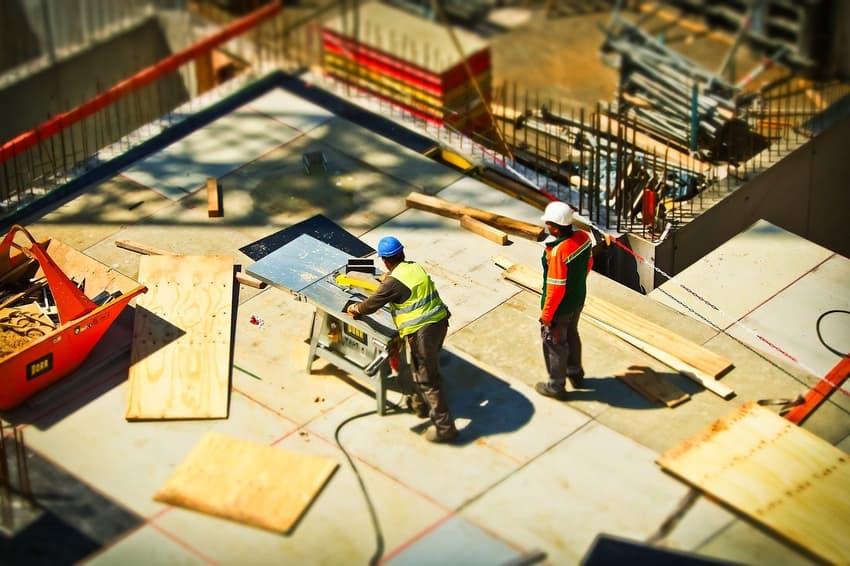How bad is Switzerland's housing shortage and what can be done about it?

Switzerland has been impacted by a scarcity of available dwellings — and consequently, high rents — for a longtime. So what do experts believe needs to be done to remedy the situation?
Looking to move? Find your next rental apartment here.
If you are currently looking for rental accommodation in Swiss cities, especially on a limited budget, you'll know how frustrating this endeavour can be.
And if you think things are getting worse on the housing market, you are right: statistics show that, compared to 2022, the number of available apartments has fallen from 1.31 to 1.15 percent nationally.
In cities, the demand for rental housing is particularly high — a phenomenon that is not new, but steadily worsening.
“The situation is particularly tense in urban areas,” said Ursina Kubli, head of real estate research at Zurich Cantonal Bank.
Whether this is due to increasing numbers of new immigrants who, according to some, put added pressure on housing and rent prices, or just the general evolution of the market, the fact is that the number of residents in Switzerland’s major cities is growing, and the supply of accommodation is lagging behind the demand.
How does this high demand / low supply ratio affect rents?
Many rent prices are set to increase in October due to higher reference rates.
But that is just one of the reasons for soaring housing costs. Another has to do with the lack of vacant units.
“Wherever the vacancy rate is less than 1 percent, the scarcity of housing pushes rents up,” according to Marco Salvi, head of research at Avenir Suisse, a think-tank for economic and social issues.
In Zurich right now, the vacancy rate is 0.53 percent and in Zug, 0.42 percent.
Consequently, rents in these two cantons are, along with Geneva, the highest in Switzerland.
READ ALSO: Where in Switzerland rent prices are highest and lowest right now
What can be done to solve this problem?
One issue, which obviously can’t be resolved, is scarcity of land, as Switzerland is a small country and space to construct new buildings is limited. and not expandable.
However, various other suggestions have been put forth in the past as well, ranging from simplifying building permit procedures to limiting immigration.
READ ALSO: How can Switzerland solve its housing shortage and curb rents?
Among those that appear to be easily implementable (assuming there is sufficient political will to make it happen) is loosening certain regulations currently in place.
Among them are noise ordinances, which have slowed down construction activity.
Swiss construction and environmental legislation regulates the level of noise allowed in housing projects, but in order to build more so that demand can be met, “strict regulations such as those relating to noise protection would have to be relaxed,” Kubli said.
Comments (2)
See Also
If you are currently looking for rental accommodation in Swiss cities, especially on a limited budget, you'll know how frustrating this endeavour can be.
And if you think things are getting worse on the housing market, you are right: statistics show that, compared to 2022, the number of available apartments has fallen from 1.31 to 1.15 percent nationally.
In cities, the demand for rental housing is particularly high — a phenomenon that is not new, but steadily worsening.
“The situation is particularly tense in urban areas,” said Ursina Kubli, head of real estate research at Zurich Cantonal Bank.
Whether this is due to increasing numbers of new immigrants who, according to some, put added pressure on housing and rent prices, or just the general evolution of the market, the fact is that the number of residents in Switzerland’s major cities is growing, and the supply of accommodation is lagging behind the demand.
How does this high demand / low supply ratio affect rents?
Many rent prices are set to increase in October due to higher reference rates.
But that is just one of the reasons for soaring housing costs. Another has to do with the lack of vacant units.
“Wherever the vacancy rate is less than 1 percent, the scarcity of housing pushes rents up,” according to Marco Salvi, head of research at Avenir Suisse, a think-tank for economic and social issues.
In Zurich right now, the vacancy rate is 0.53 percent and in Zug, 0.42 percent.
Consequently, rents in these two cantons are, along with Geneva, the highest in Switzerland.
READ ALSO: Where in Switzerland rent prices are highest and lowest right now
What can be done to solve this problem?
One issue, which obviously can’t be resolved, is scarcity of land, as Switzerland is a small country and space to construct new buildings is limited. and not expandable.
However, various other suggestions have been put forth in the past as well, ranging from simplifying building permit procedures to limiting immigration.
READ ALSO: How can Switzerland solve its housing shortage and curb rents?
Among those that appear to be easily implementable (assuming there is sufficient political will to make it happen) is loosening certain regulations currently in place.
Among them are noise ordinances, which have slowed down construction activity.
Swiss construction and environmental legislation regulates the level of noise allowed in housing projects, but in order to build more so that demand can be met, “strict regulations such as those relating to noise protection would have to be relaxed,” Kubli said.
Join the conversation in our comments section below. Share your own views and experience and if you have a question or suggestion for our journalists then email us at [email protected].
Please keep comments civil, constructive and on topic – and make sure to read our terms of use before getting involved.
Please log in here to leave a comment.